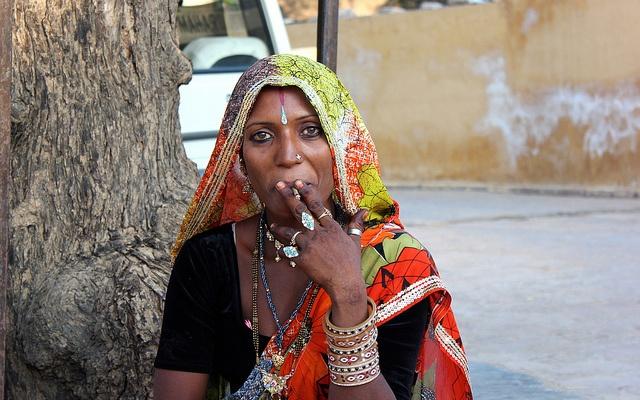
We have often discussed last year’s COP21 proceedings, and this month’s COP22 in Marrakesh will generate its fair share of headlines, but many other United Nations “Conference of the Parties” fly under the radar. One of them is COP7, which will convene delegates from across the world at the upcoming World Health Organization Framework Convention on Tobacco Control (WHO FCTC).
COP7 will be held next week in Delhi, India, to move forward on measures that aim to reduce tobacco consumption worldwide. As with much of language surrounding the United Nations’ declaration, COP7’s agenda is largely focused on how it is “undergoing a period of change,” which roughly translated means that delegates at this six-day meeting will try to find agreement on ways they can reduce tobacco consumption in developing countries.
And according to Reuters, some within COP7's leadership just realized that it would benefit next week’s meeting if delegates who work within, or have ties to, state-owned tobacco companies are barred from attending the proceedings.
As of press time, such a ban has not yet become official. Nevertheless, the internal memo leaked to Reuters shows that some delegates are concerned that the FCTC, which is billed as the world’s first international public health treaty, could be drafted with the global tobacco industry’s influence if too many industry reps participate. Past FCTC conferences have declined entry to private citizens and the media if they were suspected of having any ties to tobacco companies, but employees of state-owned companies were not subjected to such scrutiny at previous gatherings.
The international tobacco lobby is already rankled that their representatives may not be welcome at COP7, which starts Monday. The CEO of the International Tobacco Growers Association complained in an email to Reuters that it was “unthinkable for a United Nations agency” to draft an international public health treaty without input from tobacco companies.
Despite the evidence suggesting that only six massive multinationals control most of the world’s tobacco industry, the WHO says that state-run monopolies generally dominate the tobacco market in much of the Middle East, North Africa and Asia. With smoking long on the decline in North America and now even much of Western Europe, tobacco companies have set their marketing crosshairs on emerging markets. State-run tobacco companies in turn have had a role in boosting tobacco’s popularity in nations such as Vietnam, Thailand and China. According to Bloomberg, China Tobacco, which by some accounts is the world’s largest tobacco company, alone manufactured an astounding 2.5 trillion million cigarettes in 2013.
As a result, 80 percent of the world’s estimated 1 billion smokers live in low- and middle-income nations. The WHO, which often touts that statistic, also asserts that tobacco is a leading cause of impoverishment in poorer nations. In addition to shouldering the expensive burden due to smoking’s negative health affects, many of these emerging economies lack funding for public education about tobacco’s health, are slow to conduct the surveys needed to track tobacco’s popularity within their countries – and in some cases, even have many children working on tobacco farms.
Plenty of research demonstrates that poorer countries are subjected to the most relentless tobacco marketing, which is why companies profiting off such a product should not be anywhere near discussions on how to manage this ongoing public health crisis. The fact that the UN and WHO are just figuring this out now adds to their reputation as organizations that are excellent at flying the well-connected around the world for lavish meetings, but lag when it comes to making progress on the well-being for the world’s citizens.
Image credit: Nagarjun Kandukuru/Flickr

Leon Kaye has written for 3p since 2010 and become executive editor in 2018. His previous work includes writing for the Guardian as well as other online and print publications. In addition, he's worked in sales executive roles within technology and financial research companies, as well as for a public relations firm, for which he consulted with one of the globe’s leading sustainability initiatives. Currently living in Central California, he’s traveled to 70-plus countries and has lived and worked in South Korea, the United Arab Emirates and Uruguay.
Leon’s an alum of Fresno State, the University of Maryland, Baltimore County and the University of Southern California's Marshall Business School. He enjoys traveling abroad as well as exploring California’s Central Coast and the Sierra Nevadas.














